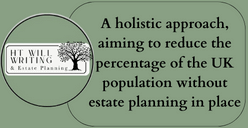NATURAL THERAPIST WARNS AGAINST EXCESSIVE ASPARTAME USE AND OFFERS NATURAL ALTERNATIVES
Nutritional therapist, Caroline Peyton from Peyton Principles, has warned people to think twice before consuming aspartame following news that the World Health Organisation (WHO) has said the artificial sweetener is potentially carcinogenic.
“Artificial sweeteners (AS) are considered a convenient way to replace sugars in our diets and help the nation’s obesity and Type 2 diabetes epidemics,” states Caroline.
“However, based on the findings of its own cancer research agency, the WHO has now declared that there is some limited evidence that aspartame, which is 200 times sweeter than sugar, is potentially carcinogenic to humans (i.e. it has the potential to cause cancer).”
In total, 11 artificial sweeteners have been approved for use in the UK with aspartame being the most popular. They are most commonly found in low sugar or sugar free products including low-sugar/calorie drinks, ice cream, chewing gum, low-fat yoghurts, puddings, low-sugar sauces, jams, sugar-free desserts, sugar-free jams, and various other low-sugar or sugar-free packaged foods.
In the US, according to the Oxford Companion, aspartame replaced more than a billion pounds of sugar in American diets in the 1980s.
But as Caroline says: “I’m not sure it has achieved that much to make that nation healthier!”
On the subject of safety, the NHS states that ‘all sweeteners in Great Britain undergo a rigorous safety assessment before they can be used in food and drink. All approved sweeteners are considered a safe and acceptable alternative to using sugar.’
“But what should be added to this statement is that most are approved based on an upper daily consumption limit and not a’ free for all liberal use. One of the problems is that they are found in so many foods and it’s not always easy to know exactly how much is being consumed,” explains Caroline.
Are all sweeteners potentially harmful? Last year, a French study of over 100,000 people stated that those who consume aspartame have an increased cancer risk. Another US study in 2019 showed a significantly increased risk of strokes from the consumption of artificial beverages.
There have been a number of studies that conclude that artificial sweeteners may not help obesity and other metabolic conditions like diabetes, as they seem to confuse the brain and lead to an increased desire to eat more. As one study states: ‘Aspartame consumption is implicated in the development of obesity and metabolic disease despite the intention of limiting caloric intake.’
Caroline adds: “As a digestive gut health expert, there are an increasing number of studies that demonstrate that artificial sweeteners alter the gut microbiome (bacteria) and this in turn can then contribute to other health concerns since the microbiota plays a significant role in the health of the body and the brain.
“I recommend that you look at packaging labels and carefully read the ingredients list. This way you can start to identify if artificial sweeteners are present.”
Caroline’s tips for reducing aspartame consumption:
- Try to reduce your consumption of low-sugar drinks. Add fruit or mint to a jug of iced water or a water bottle to add natural flavour. Rather than choose low-fat and sugar-free yoghurts that often contain these sweeteners, choose Greek yoghurt and top it with summer berries. The full-fat versions are healthier (there has been a great deal of research regarding this) and more filling.
- Xylitol and stevia are found naturally in nature and so are not “artificial”. These are preferable to artificial sweeteners. Look for these if choosing low-sugar options.
- Ideally, try to select more natural whole foods and reduce your reliance on processed foods and drinks where these sweeteners are found.
Caroline concludes: “Like most things in life, I consider it is both the frequency and quantity that we are eating less ‘wholesome foods’ that determines their impact on our health. However, I have always drawn a line under anything that is not natural and is chemically made.
“We are awash with far too many chemicals in our environment and in foods. I think it is questionable how well our bodies have adapted to manage these for optimal health. My recommendation is to minimise your intake of all chemicals including artificial sweeteners as far as possible for your best health.”
To find out more about Caroline and her work, visit: https://www.peytonprinciples.com/



















